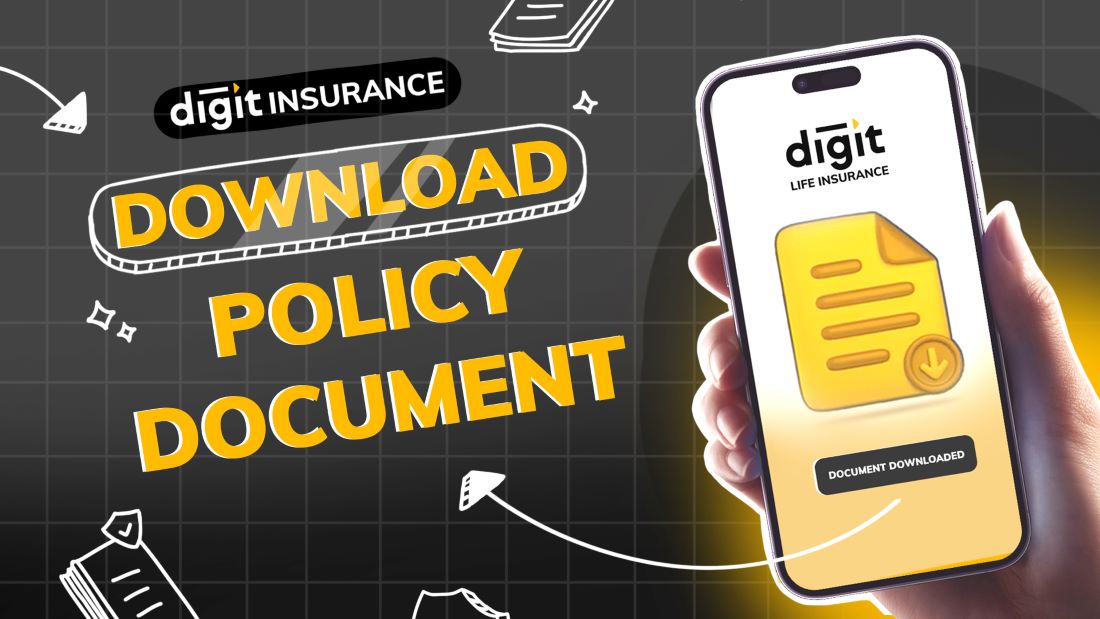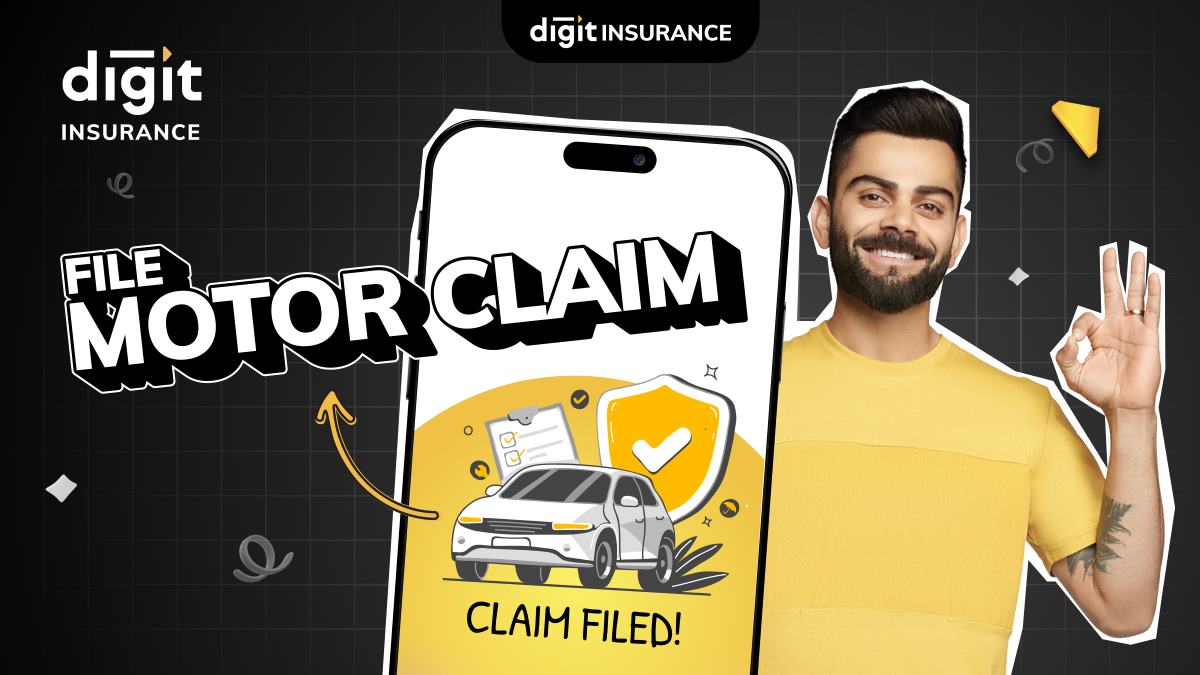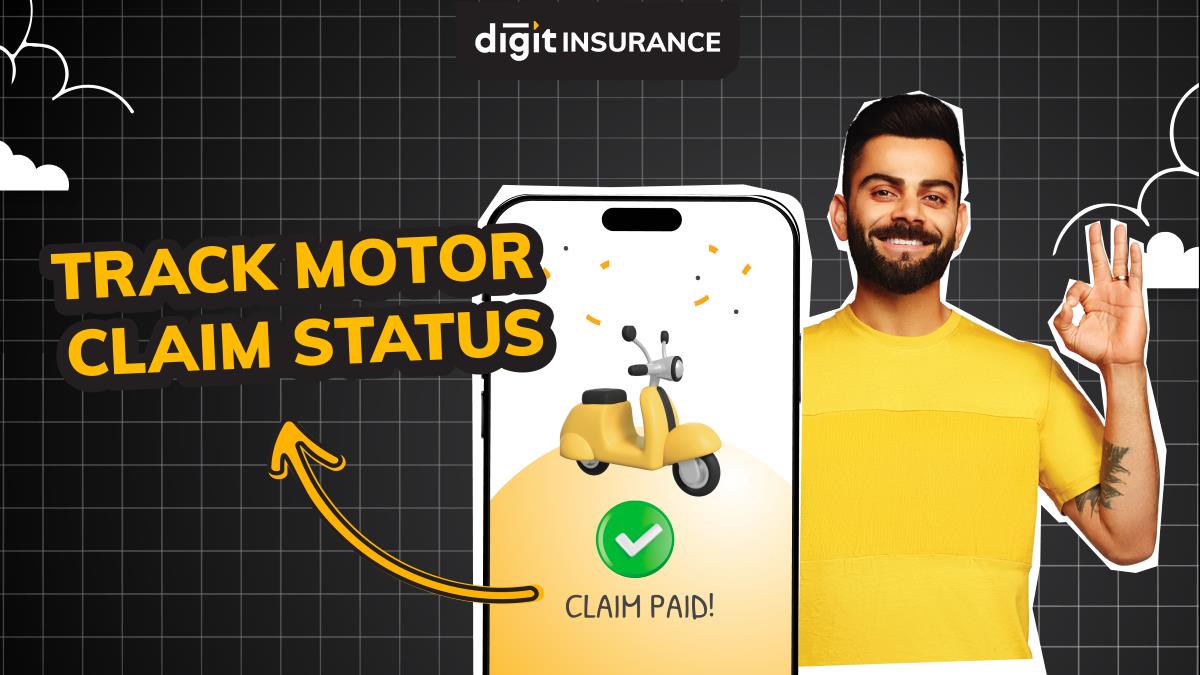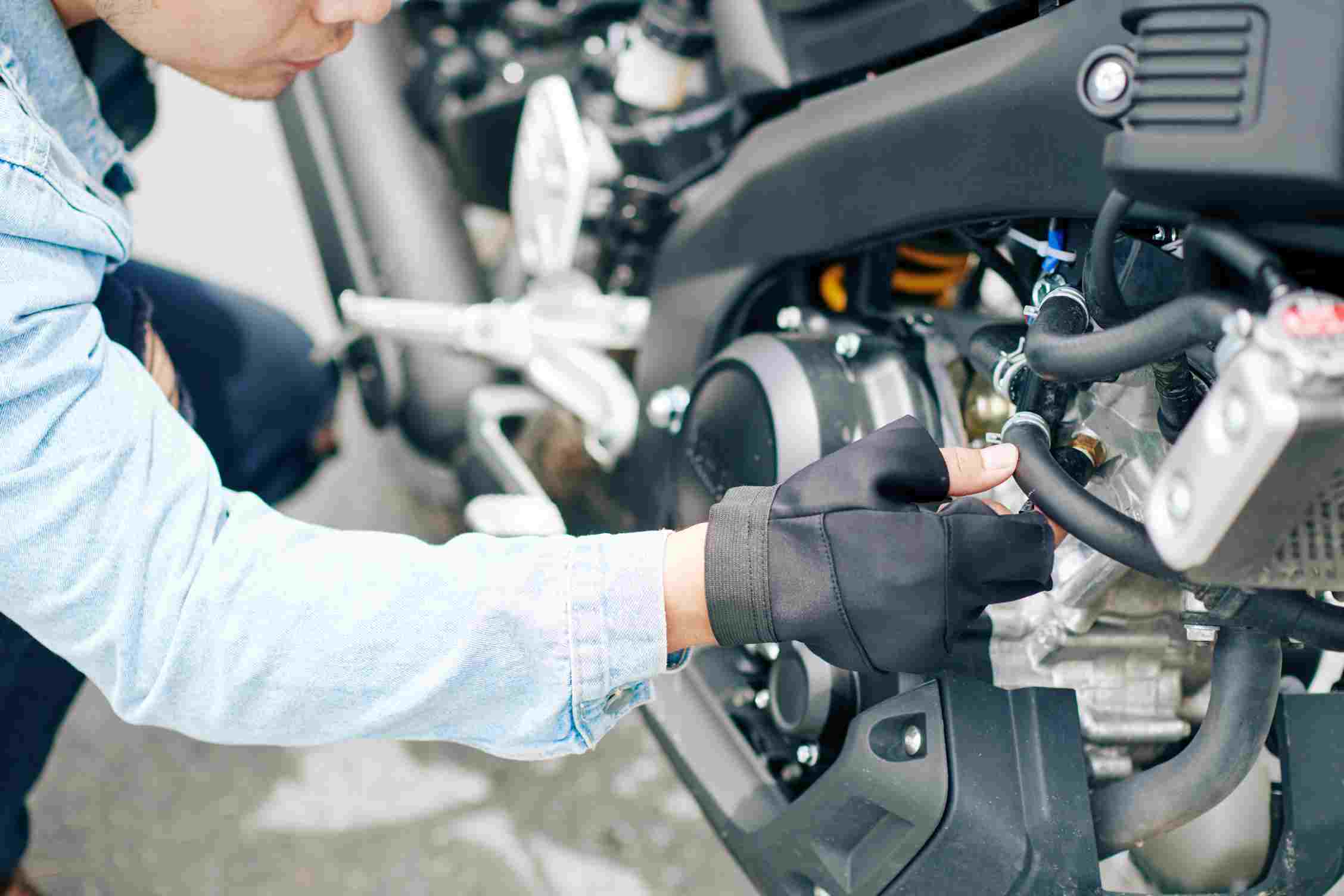Bike Insurance Online
Buy Two Wheeler Insurance Policy
9000+
Cashless Garages
1000 Crore+
Paid-in Claims
3 Cr+
Policies Sold
I agree to the Terms & Conditions
Buy Online for Huge Savings

Bike insurance Online, starting ₹752
It's a brand new Bike
9000+
Cashless Garages
1000 Crore+
Paid-in Claims
3 Cr+
Policies Sold
What is Two-Wheeler Insurance?
Two-wheeler insurance is a type of motor insurance policy that offers financial protection for you and your two-wheeler against accidents, theft, fire, and natural disasters. It also covers third-party liabilities, including damage to other vehicles, property, or individuals. Whether you ride a motorcycle or a scooter, having insurance ensures you're covered from unexpected costs and legal risks.
While third-party (TP) insurance is mandatory by law, it’s wise to opt for comprehensive coverage for better protection. These plans can be further customised with add-ons like zero depreciation, engine protection, and roadside assistance, giving you peace of mind every time you hit the road.
Why is Two-Wheeler Insurance Mandatory in India?
Two-wheeler insurance is a legal requirement under the Motor Vehicles Act, primarily aimed at ensuring financial protection and accountability in the event of road accidents.
Third-party two-wheeler insurance is the minimum legal requirement, designed to protect individuals or property that may be affected by an accident involving your vehicle. It ensures that victims receive timely compensation without prolonged disputes or financial strain.
By making two-wheeler insurance compulsory, the law not only safeguards riders and third parties but also encourages responsible behaviour on the road.

Mayur Kacholiya
Product Head - Motor
Why Do You Need Two-Wheeler Insurance in India?
Here’s why getting a bike insurance policy is beneficial for you:

Mayur Kacholiya
Product Head - Motor
Important Two-Wheeler Insurance Statistics in India
The demand for two-wheelers is rising exponentially in India, which calls for an increasing need for two-wheeler insurance. India’s motor insurance market is estimated to reach ₹1.53 trillion by 2028.
Here are other important statistics related to two-wheeler insurance in India:
Different Types of Two-Wheelers Covered in India
In India, two-wheeler insurance policy covers a wider range of vehicles including:
Private Two-Wheelers
These include standard geared and non-geared two-wheelers of all engine capacities that are used for personal purposes, including bikes, scooters, mopeds, etc.
Commercial Two Wheelers
Two-wheelers used for and by business to carry goods and passengers are covered under commercial vehicle insurance policy. It is specifically designed keeping in mind the needs of commercial bike users like delivery partners.
Electric Two Wheeler Vehicles (EVs)
Electric bike insurance protects two-wheelers which run on electricity from potential damage and losses occurring due to accidents, natural calamities, or fire.
What are the Types of Two-Wheeler Insurance Policies?
Third Party
Comprehensive
Own Damage
|
Damages/Losses to own two-wheeler due to an accident |
×
|
✔
|
✔
|
|
Damages/Losses to own two-wheeler in case of fire |
×
|
✔
|
✔
|
|
Damages/Losses to own two-wheeler in case of a natural calamity |
×
|
✔
|
✔
|
|
Damages to Third-Party Vehicle |
✔
|
✔
|
×
|
|
Damages to Third-Party Property |
✔
|
✔
|
×
|
|
Personal Accident Cover |
✔
|
✔
|
×
|
|
Injuries/Death of a Third-Party Person |
✔
|
✔
|
×
|
|
Theft of your scooter or bike |
×
|
✔
|
✔
|
|
Customize your IDV |
×
|
✔
|
✔
|
|
Extra protection with customized add-ons |
×
|
✔
|
✔
|
Know more about the difference between comprehensive and third party two wheeler insurance
Why Choose Digit Two-Wheeler Insurance Policy?
Your bike insurance not only comes with a super easy claim process, but also with the option to choose a cashless settlement
Key Features of Digit's Two-Wheeler Insurance
What’s Covered in Two-Wheeler Insurance by Digit?

Mayur Kacholiya
Product Head - Motor
What’s Not Covered?
It is equally important to know what’s not covered in your two-wheeler insurance policy, so that there are no surprises when you make a claim. Here are some such situations:

Mayur Kacholiya
Product Head - Motor
Add-On Covers with Digit Two-Wheeler Insurance
Two-wheeler insurance add-ons which you can buy with your Two Wheeler insurance policy
What Our Customers Have to Say about Us


Digit Bike Insurance in News
Watch this Video to Understand How Digit is Simplifying Bike Insurance?

Why is It Important to Renew Two-Wheeler Insurance Policy on Time?
Renewing your two-wheeler insurance policy on time is crucial to avoid financial setbacks, legal trouble, and loss of valuable benefits. Here's why timely renewal matters,
- Bear the Financial Brunt: Without an active policy, you're personally liable for any damages, medical expenses, or third-party claims in case of an accident. This can lead to significant financial hardship, especially if the incident is severe.
- Legal Liability for Third-Party Claims: In the event of an accident involving third-party injury or property damage, you’ll be legally responsible for compensation if your insurance has expired. This can be financially devastating without coverage.
- You’ll Lose Out on Your No Claim Bonus (NCB): Your NCB is a reward for not making any claims during your policy period. It can significantly reduce your premium, up to 50% in some cases. However, if you don’t renew your policy within 90 days of expiry, you lose this bonus and the discount that comes with it.
- Higher Premiums on Renewal: A lapsed policy often results in higher premiums when you try to renew or buy a new one. The loss of continuous coverage and NCB benefits contributes to this increase.
- Higher Chances of Paying a Penalty: Driving without valid insurance is a legal offence under the Motor Vehicles Act, 1988. You could be fined up to ₹2,000 or even face imprisonment for up to 3 months. Repeated offences can lead to harsher penalties.

Mayur Kacholiya
Product Head - Motor
Which Two-Wheeler Insurance Policy is the Best for You?
Note: These are just a few scenarios to help you easily understand the different policy covers. Please discuss with your insurer and advisor about the best policy for you. Remember to not take it as a recommendation from Digit.
How to Choose the Right Two-Wheeler Insurance?
- Pick the Right Plan for Your Two-Wheeler Type: The kind of two-wheeler you own plays a significant role in choosing your insurance. Two-wheeler commuters typically require basic coverage, whereas sports or high-end two-wheelers benefit from comprehensive plans with higher IDV and additional add-ons.
- Choose the Right Plan Type: There are three main types of two-wheeler insurance plans. Third-party insurance is mandatory and covers damage to others. Own damage cover is for those who already have third-party insurance and want protection for their two-wheeler. Comprehensive plans offer complete protection, covering third-party liabilities, own damage, theft, fire, and natural disasters.
- State Your IDV Correctly: IDV (Insured Declared Value) is the current market value of your two-wheeler after depreciation. It directly affects your premium and the amount you’ll receive for your claim. Always ensure your IDV is accurate, not overstated or understated.
- Check Service Benefits: Good insurance isn’t just about coverage; it’s also about service. Look for benefits like roadside assistance (which doesn’t count as a claim), cashless repairs at network garages, and 24/7 customer support.
- Know What’s Covered: Your policy should cover accidental damage, theft, fire, natural calamities, third-party liabilities, and personal accident cover. These are the core protections that justify your premium.
- Compare Two-Wheeler Insurance Quotes: The biggest advantage of buying two-wheeler insurance online is that you can compare different two-wheeler insurance quotes. Make sure to compare important factors, such as reliability, claim settlement ratios, and processes.
Read More
Read Less
Why Choose Digit for Your Two-Wheeler Insurance Renewal?
It doesn’t matter whether your old two-wheeler insurance policy was with us or not, choosing Digit for two-wheeler Insurance renewal is easy and hassle-free and can be done within minutes online.
Looking to renew your two-wheeler insurance policy with us for the first time? Here are some benefits to look forward to:
How to Buy/Renew Two-Wheeler Insurance with Digit?
Enter Bike Details
On the Digit App or website, enter bike’s registration number and select the policy status.
Choose a Plan
Select the type of bike insurance plan and choose desired add-ons.
Enter Personal Details
Enter your personal, nominee and vehicle details, and move to the next step.
Make Payment
Complete the payment and mandatory KYC verification process.
That's It!
You’ll receive the policy document via email, SMS and WhatsApp. Also, you can access it 24X7 on the Digit App.
Documents Required to Buy Two-Wheeler Insurance Online
To buy Digit bike insurance online, a load of paperwork is not required. Furnish only the following documents to buy a new two-wheeler insurance policy within minutes:

Registration Certificate
Previous Year Insurance Policy

Documents for KYC Verification
Why Buying a Two-Wheeler Insurance Online Makes Sense?
Buying bike insurance online not only makes things easier and more convenient for you, but also helps reduce costs and hence, your bike insurance premiums!
- Saves Time: Buy a policy online whenever and wherever you want. That’s it!
- Customisation Available: Customise your IDV or opt for a combination of different add-ons online.
- Zero Paperwork: No paperwork involved. Everything is literally just online!
How to Calculate Bike Insurance Premium?
Provide Bike Details
Enter your bike’s registration number and select if your policy is expired or not.
Select Policy Type
Choose from the types of plans available- comprehensive, third-party or own damage.
Choose Add-ons
Select your insurance policy tenure and any required add-ons from the list.
Check Premium
On the bottom-left of the page, you will be able to see your bike insurance premium amount.
Third-Party Bike Insurance Premium Rates
The third-party bike insurance premium is charged based on a bike’s engine capacity. Let’s have a look at the prices for the year 2019-20 vs 2022
Third-Party Premium for New Two-Wheelers (5-Year Single Premium Policy)
Premiums for New Electric Vehicle (EV) Two-Wheeler (1-Year Single Premium Policy)
Premiums for New Electric Vehicle (EV) Two-Wheeler (5-Year Single Premium Policy)
What are the Factors Affecting Two-Wheeler Insurance Premium?
You and your friend who own a two-wheeler from the same company might be paying different insurance premiums, but why? Here are several factors that affect your bike insurance premium calculation differently, including:
- Type of Insurance Plan: Your two-wheeler insurance premium is primarily based on the kind of coverage or insurance policy you buy. The premium on the Comprehensive Insurance Policy is slightly higher than on a Third-Party Policy, as the former offers insurance coverage for third-party liabilities and Own Damage.
- Two-Wheeler Make/Model: This factor significantly influences the two-wheeler insurance premium. If you insure a low-cost two-wheeler or a regular scooter, the premium would be lower than a more expensive vehicle or a luxury bike. It is because the parts of different models have different replacement costs at the time of the claim. So, the higher the value of the insured vehicle, the higher the risk for the insurer.
- Age of the Vehicle: The market value of your two-wheeler is influenced by the age of the vehicle, which in turn impacts your insurance base premium (excluding NCB, Discounts/loading, etc.) The older vehicle will have a lower market value due to depreciation, so the sum insured will be lower, and you will need to pay less base premium. On the other hand, a brand-new vehicle with a higher market worth will fetch a higher base premium.
- Insured Declared Value (IDV): IDV refers to your vehicle’s approximate current market value after calculating its depreciation value. It is a crucial component of any insurance policy and is directly proportional to the premium.
- No Claim Bonus (NCB): It is a reward in the form of a discount upon not raising any claim in a policy year. So, at the time of the policy renewal, the percentage of NCB value you are eligible for, as determined by your insurer, can significantly lower your insurance premium for the following year.
- Add-On Covers: If you wish to protect your two-wheeler in all possible situations, you can customise your Comprehensive Two-Wheeler Policies by opting for add-on covers such as a Zero Depreciation Cover, Tyre Protect Cover, RTI and more. This will increase your scope of coverage and hence leads to an increase in your premium amount.
- Engine’s Cubic Capacity: If the cubic capacity (cc) of your vehicle’s engine is 75 cc or less, your insurance premium would be low. If your two-wheeler is labelled 350 cc, you will have to pay a larger premium for the coverage.
- RTO Location: The vehicle’s geographical location also determines your insurance premium value. If you frequently ride in a city with more accidents, the premium will also be higher and vice versa.
Read More
Read Less
How to Download Your Digit Two-Wheeler Insurance Policy Document?
After purchasing a two-wheeler insurance policy, it is essential to download and keep a copy for future reference. With us, you do not need to carry hard copies of your insurance policy. You can simply download it from our app. 🙂 Follow these simple steps to download your policy document from the Digit website or app:
Login Your Account
Visit the Digit website or app and click on ‘Login’ at the top-right corner. Enter your registered mobile number and verify with OTP.
Visit ‘Active Policies’
Once logged in, navigate to the Active/My Policies section. Here, you can check the policy number, end date & start date.
Download the Policy
Done! You can save, share, print or email the policy for future reference anytime, anywhere.
How to File & Track a Two-Wheeler Insurance Claim with Digit?
Login
Open the Digit App and go to the "File Motor Claim" option. Login and you'll be directed to the "File Motor Claim" page. Click on the policy card to start claim filing.
Provide Details
Fill in all the details related to the accident and damage to the bike.
Enter Personal Details
Update your personal details and that's it, your claim is successfully filed, and you will receive the next steps on your email & WhatsApp.

Digit's Cashless Garages
Get cashless repairs at 9000+ garages across India

What is Cashless Two-Wheeler Insurance?
Cashless two-wheeler insurance means that the insurer pays the approved claim amount directly to an authorised garage, so the policyholder doesn’t have to pay anything upfront for covered repairs.
All you need to do is inform your insurer, get the damage assessed, and take the two-wheeler to a network garage. However, it’s important to note that not all expenses, like deductibles, depreciation, or excluded repairs, are covered under a cashless claim; in this case, the insured has to pay out of their pockets.
73% Two Wheeler Repair Work Approvals done within 12 hours
- In H2 FY25, our average two-wheeler repair approval time was 14 hours and 32 minutes, with 73% of approvals completed within 12 hours. Only a few cases experienced longer wait times, typically due to complex assessments or the need for additional documentation, highlighting our commitment to minimising delays and maximising efficiency.
- Rest assured, we carefully monitor every step to ensure your two-wheeler is back on the road as swiftly as possible!
How to Avoid Two-Wheeler Insurance Claim Rejections?
- Understand Your Policy: Many claims are rejected simply because the policyholder is unaware of what their insurance covers. Always read your policy document to understand the inclusions, exclusions, and conditions.
- Be Honest and Accurate: Providing false information or hiding facts like previous claims, accident details, or two-wheeler modifications can lead to claim denial. Always be transparent with your insurer from the start.
- Keep Documents Updated: Ensure your driving licence, Registration Certificate (RC), and Pollution Under Control Certificate (PUCC) are valid and up to date. Missing or expired documents can delay or even reject your claim.
- Follow Traffic Rules: Claims can be rejected if the accident occurred due to violations like drunk driving, underage riding, or reckless behaviour. Safe and lawful riding helps protect your eligibility for a claim.
- Inform Before Repairs: In the event of an accident or any other issues, always notify your insurer before doing any repairs. Unauthorised repairs without insurer approval can result in claim rejection.
- Transfer Insurance for Used Two-Wheelers: If you buy a second-hand two-wheeler, transfer the insurance policy to your name immediately. Claims may be denied if the policyholder’s details don’t match the registered owner.
Important Articles about Two-Wheeler Tips

What is Insured Declared Value (IDV) in Two-Wheeler Insurance?
IDV is the maximum amount your insurer will pay if your two-wheeler is stolen or totally damaged. It reflects the current market value of your two-wheeler after depreciation. Your insurance premium is directly linked to your IDV.
A higher IDV means a higher premium, and as your two-wheeler ages, both IDV and premium decrease. While a low premium may seem attractive, it could mean a lower IDV and lower compensation in case of total loss.
How is Depreciation Calculated in Two-Wheeler Insurance?
The Insured Declared Value (IDV) of the two-wheeler is adjusted for depreciation value of your bike as per the below table.
In the table, age-wise depreciation is applicable for only Total Loss/Constructive Total Loss (TL/CTL) claims.
Depreciation is calculated based on the age of your two-wheeler and directly affects the Insured Declared Value (IDV).
In the table, age-wise depreciation is applicable for only Total Loss/Constructive Total Loss (TL/CTL) claims.

What is Zero Depreciation in Two-Wheeler Insurance?
Zero Depreciation is an add-on cover that ensures you receive the full cost of repair or replacement without any depreciation deduction, provided repairs are done at the chain of garages approved by the insurer.
Usually, parts like bumpers, metal, or fibreglass components lose value over time due to depreciation. In case of damage, this reduces your claim amount. With Zero Depreciation, that reduction is waived, and you get the full compensation.

What is No Claim Bonus (NCB) in Two-Wheeler Insurance?
No Claim Bonus is a discount on premium given to the policyholder for having a claim-free policy term.
A no-claim bonus ranges from a discount of 20-50% and is something you earn at the end of your policy period by maintaining a record of making no two-wheeler accident claims under your two-wheeler insurance policy.
A No Claim Bonus is meant for the two-wheeler insurance policyholder, regardless of the two-wheeler. This means even if you switch your two-wheeler, your NCB stays with you.
Why It’s Important to Have Insurance for an Old two-wheeler?
Even if your two-wheeler is a few years old, having an active insurance policy is essential. Here are the key things to consider when insuring an older two-wheeler:
- Two-Wheeler Usage & Type of Insurance: Think about how often and why you use your two-wheeler. If it’s just for occasional rides, a third-party policy may be enough to stay legally compliant. But if you still use it regularly, a comprehensive plan offers better protection against damage, theft, and natural disasters.
- Set the Right IDV: The Insured Declared Value (IDV) is the current market value of your two-wheeler after depreciation. For older two-wheelers, it’s important to set an IDV that reflects its actual worth. This directly affects both your premium and the claim amount in case of total loss.
- Choose Add-Ons That Make Sense: Comprehensive insurance allows you to add extra covers, but not all add-ons are relevant for older two-wheelers. For example, Return to Invoice may not apply if your two-wheeler is over five years old. Instead, consider practical add-ons like roadside assistance or zero depreciation (if eligible), based on your two-wheeler’s age and condition.
Why is It Important to have an Active Insurance Policy for Second-Hand Two-Wheelers?
Second-hand two-wheelers need reliable insurance coverage to stay legally compliant and financially protected. Here's why keeping your policy active matters:
- Avoid Legal Penalties: Riding without valid insurance can lead to fines ranging from ₹1,000 to ₹4,000 under the Motor Vehicles Act. An active policy ensures you're legally covered and avoids unnecessary trouble.
- Shield Yourself from Financial Losses: Accidents, theft, or natural disasters can result in unexpected expenses. Without insurance, you're responsible for all costs. Keeping your policy active protects you from these financial risks.
- Protect Your No Claim Bonus (NCB): If your policy lapses, you lose any accumulated NCB, which could have earned you a discount on your renewal premium. Renewing on time helps retain this benefit and keeps your future premiums lower.






































